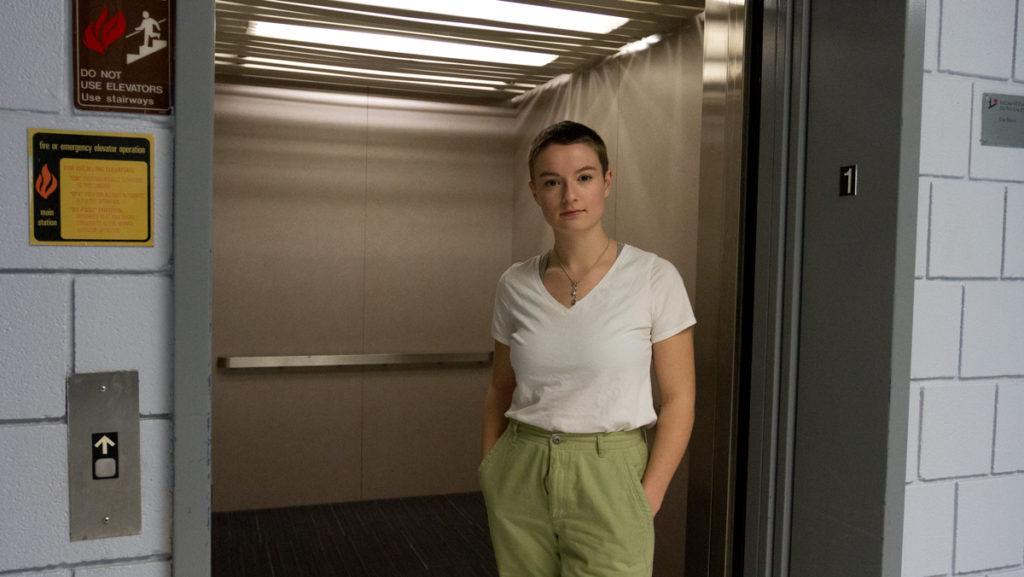When students tell someone they attend Ithaca College, a common question is, “Aren’t there a lot of hills?” The answer is always yes, and for the average college-age student, not something to worry about. To put the hills into perspective, the elevation difference from the bottom of campus at the Park School to the top of Terraces is 200 ft. That’s roughly 18 stories.
As a second-semester freshman, the question of hills is one I’ve heard a lot. And as someone who struggles with chronic pain and fatigue, it’s a question that resonates with me every day. I fell in love with Ithaca College when I visited campus two years ago, and my health has gotten progressively worse over the last year. I never thought attending my dream school would come at the same time as declining health, but I am lucky to have the support of my friends and family as I face this challenge. I used to worry that people would think I’m lazy — I used to think I’m lazy! — but once the dots of my symptoms started to connect, understanding followed.
Pain levels and overall wellness vary from day to day, and each day I face a varying degree of difficulty navigating my way around campus. I make my way strategically along walkways hoping no one bumps into me too hard. I’ve recently come to rely on the few reliable elevators to get around campus. When I have to head up a hill, I always find the nearest ones. Most of my classes are in Friends Hall, and even though it’s a nice walk through the tunnel or outside on a nice day, I often find elevators jam-packed when making my way through the Whalen Center for Music.
As someone who doesn’t “look disabled,” it’s uncomfortable asking people to move over for me, or to even leave the elevator so I can have space. Most of the time someone responds with a smile and obliges.
But I have also been denied use of an elevator on campus multiple times. People have heard my request and chose to ignore me. Some even look me in the eye and say “no.”
People likely don’t take my request seriously because I don’t seem like I need the assistance. I walk around with pain every day, but I try not to let it show.
At the moment, I’m technically not disabled. Chronic pain can stem from a number of causes, and I am still in the process of seeking out a proper diagnosis and treatment plan. I am fully reminded of my circumstances and the challenges I face when kept from the help I need — be it an elevator, a handrail, or more space in the hall. Becoming dependent on elevators made me realize there are only a few reliable ones around campus, and plenty of people who need them even more than I do.
The campus community needs to be aware of allowing students to use elevators who need them, regardless of the physical representation of their physical disability. No one should have to prove their ability or inability when trying to function in everyday life. A simple “I need an accommodation” should be enough.














